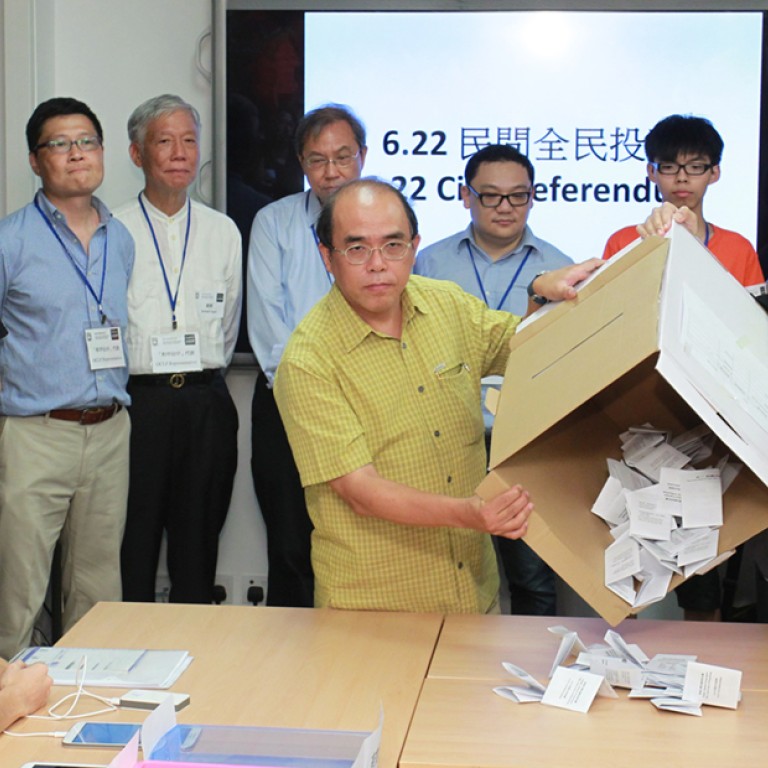
'Occupy has nothing to fear from anti-terror law'
… just as journalists need not be alarmed by proposed anti-stalking law
In a editorial published earlier this year, the Occupy Central campaign was labelled "a kind of terrorism". Is this characterisation correct under Hong Kong law?
Consider the definition of a "terrorist act" in our United Nations (Anti-Terrorism Measures) Ordinance, enacted in 2002 after the September 11 attacks on the US. A terrorist act involves the threat of action with the intention to compel the government to do something, and to advance a political or ideological cause. There must be an intention to use action that would have certain violent or non-violent consequences.
Three types of non-violent consequences come within the definition: creating a serious risk to the health or safety of the public; seriously interfering with or disrupting an electronic service; and seriously interfering with or disrupting an essential service, facility or system, whether public or private.
Occupy Central seeks to influence the government for the purpose of advancing a political cause. Its means threaten a serious disruption of essential services and facilities, for example, roads, walkways and public transport, and could create a serious risk to the health or safety of the public. Thus, the movement arguably comes within this aspect of the definition.
But no one in Hong Kong would seriously begin to label the academics and reverend behind Occupy Central as terrorists.
Such a view is clearly supported in the law because the definition of a terrorist act includes an exception for "any advocacy, protest, dissent or industrial action". This exception was taken from English and Canadian anti-terrorism legislation.
The government's original proposal was for the exception to apply only to the third type of non-violent disruption, but after criticisms from legislators and the public, the exception was extended to all three types.
When a bill to implement national security legislation in Article 23 of the Basic Law was being debated in 2003, the government was criticised for not including a similar exception to the proposed crimes of subversion and secession, which had borrowed partially from the definition of a terrorist act.
By virtue of this clear exception, the police and prosecutorial authorities will not begin to contemplate resorting to anti-terrorism laws in relation to the Occupy Central movement.
The same approach can be applied to the media's current concerns with proposed anti-stalking laws. If such laws are defined with clear exceptions for activities related to newsgathering, lawful employment and communication of public affairs, then the media and protesters have nothing to worry about.
For the same reason that anti-terrorism laws will not be used against Occupy Central, the proposed stalking offence would not be used against journalists and protesters.
It is misconceived to think exceptions will be relevant only at trial, after charges are laid.
The proposed exceptions would be treated like essential elements that the prosecution would need to prove in the usual way before charges are laid. If there is evidence that any of the exceptions might apply, the police in their normal practice would not pursue the matter.
Instead, the stalking offence would be used primarily against those people who torment or intimidate another person, but without using violent or criminal means.
Whatever their motivation, sadly the police can do very little at present to stop conduct that causes people or their family members to fear for their safety.

